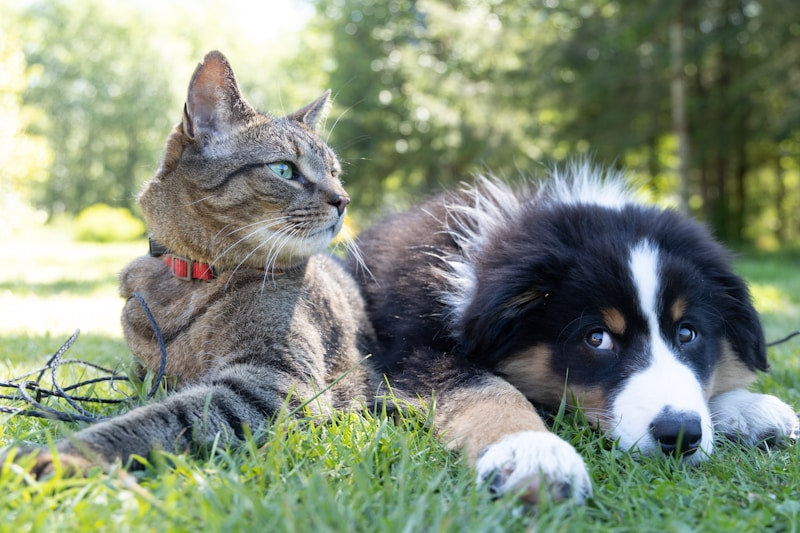The booming trend of cannabidiol, commonly known as CBD, has permeated consumer markets, promising a myriad of health benefits for both humans and animals. Pet owners, with a growing interest in holistic health, are increasingly turning to CBD as a potential remedy for their furry companions. However, pets cannot voice their experiences, leading to a myriad of uncertainties and questions. Do veterinarians truly recommend CBD for pets?
In this deep exploration, we will walk you through the perspectives of veterinary professionals, unlocking the potential behind CBD in animal healthcare. Join us as we sniff out the beneficial aspects, tackle the regulatory landscape, and guide you through this hazy realm with clear insights.
The CBD Craze in Pet Care
Pet CBD sales have skyrocketed, with an approximate increase of 946% from 2018 to 2020, according to leading animal health industry analysts. This exponential growth hints at a paradigm shift in pet care, with a burgeoning interest in alternative and natural remedies. Why the shift? Pet owners, often mirroring their own health choices, are opting for products they believe to be safer and less invasive than traditional pharmaceuticals.
The enthusiasm for CBD in pet health is not without merit. CBD, extracted from the cannabis plant, is prized for its potential to alleviate pain, reduce anxiety, promote relaxation, and improve sleep — benefits that are equally desirable for our four-legged friends. Beyond anecdotal evidence, an increasing number of scientific studies support these positive outcomes.
Expert Voices: What Vets Say about CBD
Veterinary professionals, the gatekeepers of animal health, have varied perspectives on CBD. Due to the scarcity of clinical research, their stance often hinges on cautious optimism. Some veterinarians are championing CBD as a complementary therapy, particularly for chronic pain and certain behavior conditions. Meanwhile, others are more circumspect, advocating for more robust studies to validate safety and efficacy.
The consensus among experts is that the source and quality of CBD products are paramount. Transparency in labeling, third-party testing, and accurate dosing information are indispensable for incorporating CBD into a pet's wellness routine. Vets commonly recommend CBD for conditions such as arthritis, seizures, and inflammation, but always as part of a holistic approach and under the supervision of a professional.
The Furry Grey Area: CBD and Pets
Navigating the use of CBD in pets is complex. While the potential benefits are clear, so too are the risks, which primarily stem from the largely unregulated market. Mislabeling, contaminants, and improper dosing pose significant hazards to animal health. The intoxicating psychoactive compound of cannabis, THC, is toxic to pets in high doses and must always be avoided.
Pet-specific CBD products are tailored to the unique needs of animals, often with flavors to mask the earthy taste of CBD. Dosing relies heavily on the pet's weight and underlying health, making it crucial for pet owners to consult with a veterinarian. CBD can interact with other medications, so inform your vet of any supplements your pet takes.
The Pawz and Effect: Anecdotes and Studies
The petcare segment's anecdotal support behind CBD is significant. Heartwarming stories of pets regaining mobility and improving their quality of life after using CBD abound. But anecdotes do not negate the need for scientific rigor. Thankfully, preliminary studies are emerging, offering more substantial evidence.
Recent research has shown promise for CBD in managing pain and inflammation in dogs, cats, and other companion animals. Its anxiolytic effects and anticonvulsant properties have also been documented, particularly in the treatment of noise phobias, separation anxiety, and epilepsy. However, the volume and scope of these studies are still inadequate, leaving many questions unanswered.
Into the Doghouse: Risks and Caveats of CBD
While the jury is still out on the long-term effects of CBD on pets, there are some caveats and risks that need to be acknowledged. In some cases, CBD may cause mild side effects, such as sedation or gastrointestinal upset.
Undoubtedly, the greatest risk comes from the accidental ingestion of high THC or the use of products not intended for pets. For any pet product, ensuring it is pet-safe, human-quality, and - if dealing with a new product - start with a low dosage are important safety precautions.
The Tail End: CBD for Your Pet
The integration of CBD into pet care is a nuanced puzzle, with pieces of promise and caution. There is no one-size-fits-all answer, but there are clear steps for pet owners looking to explore this avenue. Begin with a conversation with your veterinarian. Together, you can evaluate whether CBD is appropriate for your pet's condition and if so, find a reliable, high-quality product.
It's crucial to enter the CBD market for pets with discernment and skepticism. Be a proactive and informed consumer, and never hesitate to advocate for your pet's well-being. Keep an eye on the evolving research and laws surrounding CBD, and most importantly, watch and learn from your pet's response to CBD products. Their health and comfort are the ultimate measures of success in pet care.
Contact Nova Hemp to learn more about its Pawz Bacon and Tuna Flavored CBD oil For pets!






Share:
Virginia Governor Vetoes Cannabis Bill
CBD Water Soluble: the Next Frontier in CBD Absorption